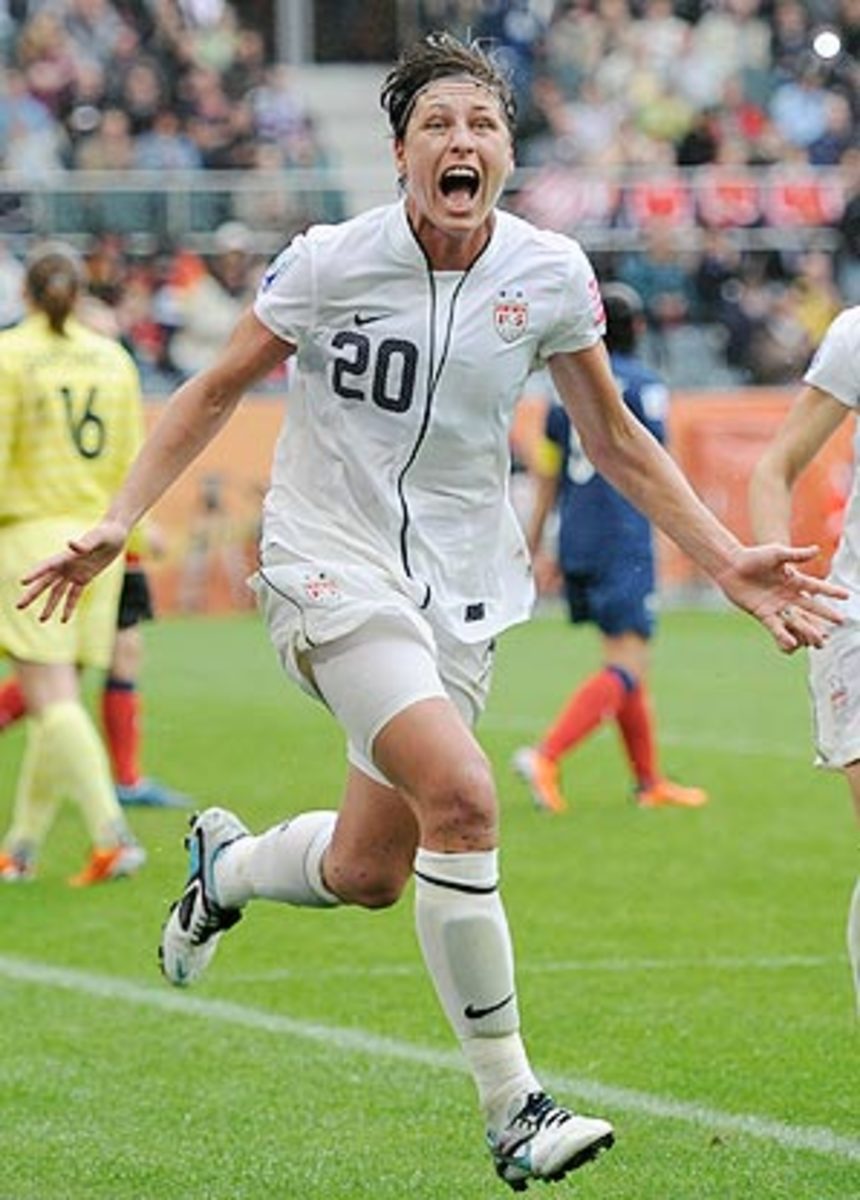
Explaining the U.S. Olympic bonus discrepancy; more Planet Fútbol
BARCELONA -- We've been putting the planet in Planet Fútbol lately, spending the last two weeks in London, Milan, Genoa, Baltimore, Seattle and Portland before coming this week to Barcelona. It's great fun from a journalistic perspective, though perhaps less so in a jet-lag sense; my body has zero idea what time zone it's in right now. But don't worry: We'll continue soldiering on through the hardship. (Joking!)
Most of my work will be in Sports Illustrated in the next few weeks, but I wanted to put out a few useful notebook nuggets here. So let's dive in:
The U.S. men will compete for one of the two Olympic berths available at the CONCACAF men's qualifying tournament starting March 22 in Carson, Calif., and Nashville. The date to circle on your calendar is March 31, the day the two Olympic spots will go to the victors of winner-take-all semifinals in Kansas City.
The U.S. women already qualified for the Olympics in January, which brings up an unusual situation: While the U.S. women will receive a bonus of slightly more than $1 million from U.S. Soccer if they win the gold medal, the U.S. men are currently not scheduled to earn a dime from the federation if they strike gold in London. (The U.S. Olympic committee will give $25,000 to any U.S. athlete that wins a gold medal.) It's an intriguing turn of the tables considering the history of men receiving more prize money than women in events like the Wimbledon tennis tournament in years past.
What explains the discrepancy in Olympic soccer bonus money? Well, the Olympics is a senior-level event on the women's side, while it's an under-23 tournament (with three overage players allowed per team) on the men's side, the better for it not to compete with the World Cup. The bonus money for the U.S. women was negotiated as part of the senior team's collective bargaining deal with U.S. Soccer, while the under-23 men's team doesn't have a collective bargaining agreement with the federation.
That said, there's nothing preventing the U.S. men's senior team from negotiating an Olympic medal bonus for the under-23 team in its own CBA, especially since the team will likely include those three overage senior players. It just hasn't happened that way.
When I asked U.S. Soccer president Sunil Gulati about bonuses recently, he didn't want to comment on the situation for 2012. But he did acknowledge that the 2000 U.S. men's Olympic team (which lost in the semifinals to a Xavi-led Spain and fell to Chile in the bronze-medal game) would have received a bonus had it won a medal. "I don't know what had been contemplated in 2008, to be honest," Gulati said. (The U.S. men failed to qualify in 2004 and went out in the opening round in '08.)
During my London stop I had an excellent stream-of-consciousness trip down memory lane with Tottenham coach Harry Redknapp, who started his coaching career as a player-assistant manager with the old Seattle Sounders of the NASL in 1976. Redknapp was a good man to spend some time reminiscing about his Seattle days even though the Spurs-Arsenal game was only 48 hours later. Perhaps the best way to present the conversation is to let Redknapp ride the wave, with ellipses between thoughts:
"I started coaching [in Seattle] with Jimmy Gabriel and Bobby Howe. We went over together from Bournemouth. Geoff Hurst played for us. So did Bobby Moore. They were great days, a time when everybody was in America. The Cosmos had Pelé and Beckenbauer and Carlos Alberto. Every player in the world was out there at that time: Gerd Müller, all the great Dutch boys. ... We used to go training in the mornings, come back after training and the wives would be down at the lake doing a barbecue. It was a great way of life. ... The crowds were amazing, and the people were great to us. You'd go back to the booster club and they made a fuss of everybody. And lovely atmosphere! It wasn't like here when if you'd played badly you wouldn't go to the supporters club afterward because you'd get slaughtered. It was different. We all enjoyed America.
"We played in Portland one night, and it went to the shootout. The 35-yard-line! And the referee had just come in from somewhere, and he didn't know the rules. So the shootout lasted about an hour and a half, and all 10 players missed! All 10! It was finally sudden death. ... Do they allow draws now [in MLS]? Because they always felt the public wouldn't like the draw. ... Can you get a draw in basketball? I followed the basketball when I was out there. The Sonics were the world champions that year. Downtown Freddie Brown! He'd take long shots, you know."
At this point, I informed him the Sonics had moved to Oklahoma City.
"I didn't know the Sonics had left Seattle. My god. Why? They were so popular! ... I'd love to go back to Seattle and take the team there. We're talking about going to America again. ... I played in the first game ever played indoors. In Houston. We played Real Madrid! They were the European champions then. It was the Houston Astrodome. ... It was so different for us all. They were so bad, Astroturf pitches, back then in the '70s. Portland had a terrible pitch! It was absolutely dreadful. We played in the Kingdome. That's gone now as well, hasn't it, the Kingdome? I saw them blow it up on the television."
Thanks, Harry, for putting a smile on my face. And let's get that return friendly set up between Spurs and Seattle.





